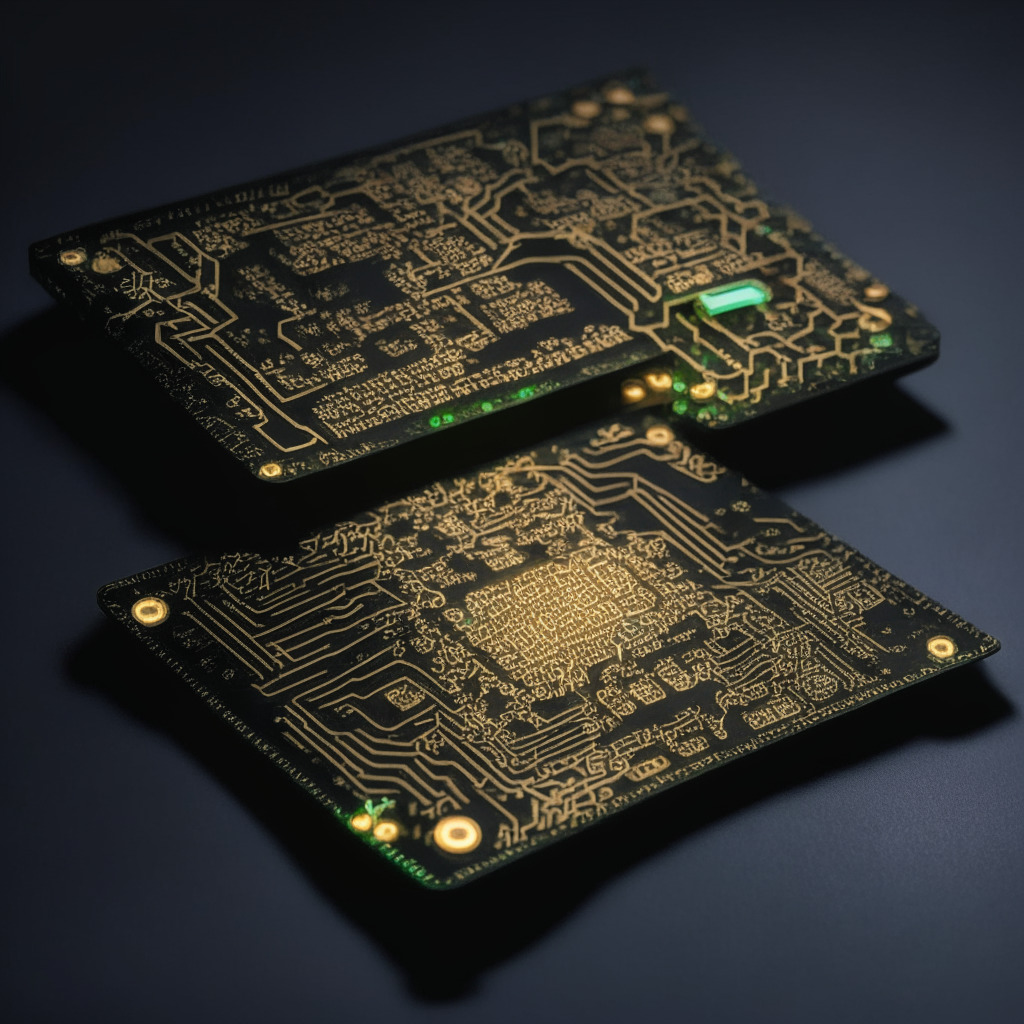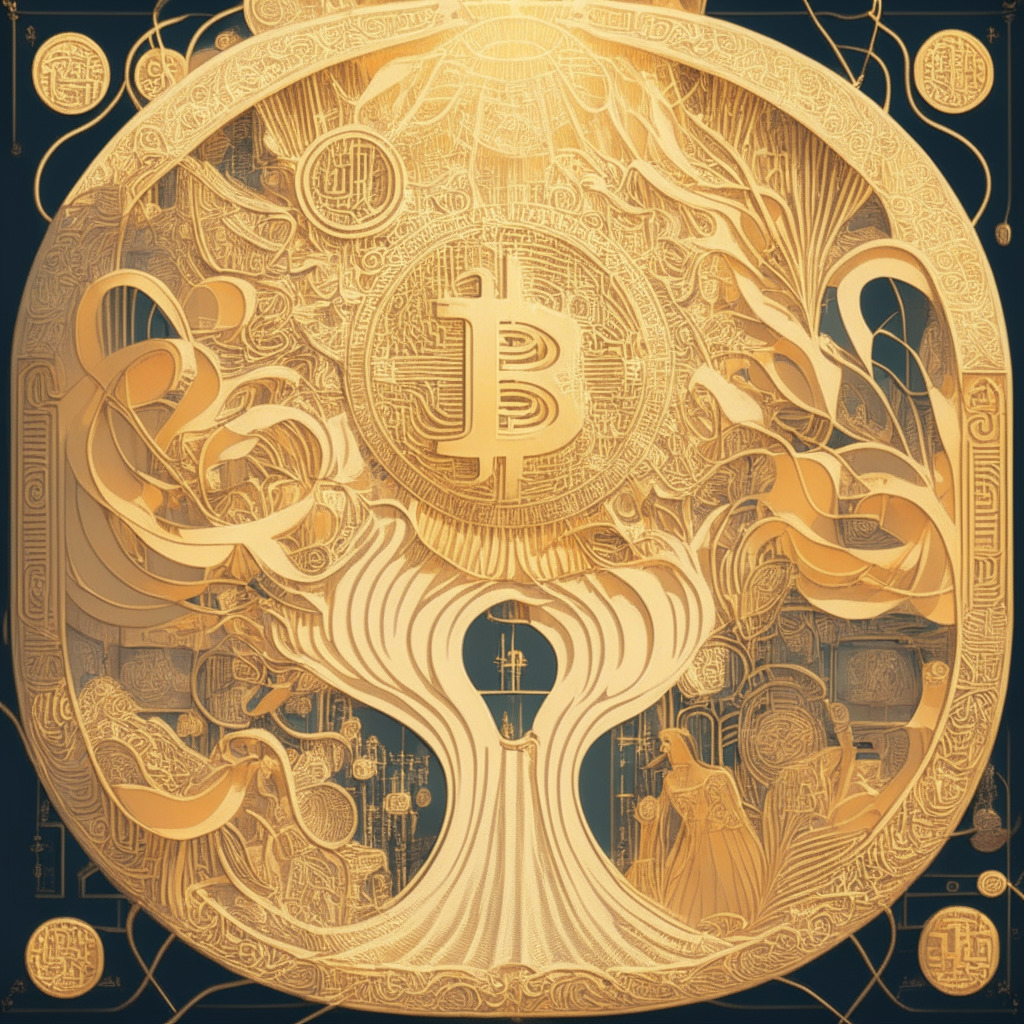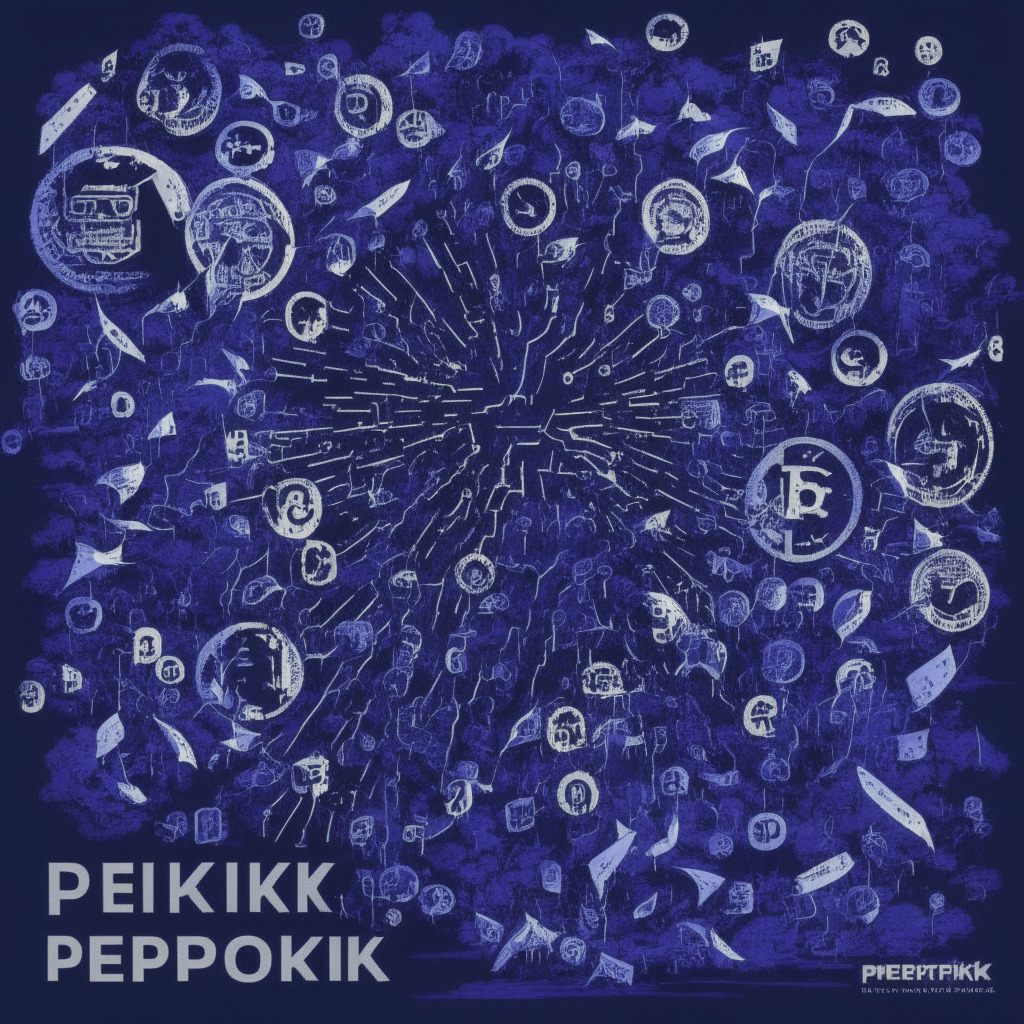“ConsenSys, a leader in Ethereum software, has decided to discontinue key toolkits, Truffle and Ganache. The firm plans to focus on empowering developers through MetaMask toolkits. The transition involves an alliance with HardHat, support platforms for developers and the launch of innovative decentralized applications, MetaMask Snaps.”
Search Results for: GitHub
Unveiling Consensys Fellowship Program: Catalyst for Web3 Startups or Impractical Venture?
Blockchain leader Consensys introduces its first Consensys Fellowship Program, aiming to support Web3 startups. The non-equity program offers potential investments of up to $1.5 million, hands-on workshops, mentorship from industry professionals, and flexible part-time structure. It encourages innovative Ethereum use cases and startup growth.
Building Your Own Cryptocurrency Wallet: Alluring Innovation or Security Nightmare?
Using Trezor’s open-source code, electronics design manager Florin Cocos constructed his own DIY Trezor cryptocurrency wallet. However, creating a functioning hardware wallet requires expertise in electronics and significant time investment. Aspects including potential security vulnerabilities and the required level of technical know-how should also be considered before undertaking such a project.
State-Sponsored Crypto Heists: A Deep Dive into the Threat of North Korea’s Lazarus Group
“The North Korea-affiliated Lazarus Group has allegedly stolen $41 million in crypto from Stake.com, according to the FBI. Using a leaked private key to a hot wallet, the loot spread across Ethereum, BSC, Polygon, and Bitcoin networks. These hacking events highlight the crypto industry’s vulnerability and necessity for effective security measures.”
Unveiling Polygon’s Open Source Developer Stack: Scalability Promise vs. Skepticism
Polygon’s new open-source sidechain developer stack is set to power Layer 2 solutions on Ethereum, backing its commitment to the evolution of the Ethereum ecosystem. Key to this advancement is the integration of zero-knowledge proof technology, considered critical for the scaling of the Ethereum blockchain. However, critics raise concerns about potential inefficiencies and differing architecture.
Enhancing Blockchain Security: A Deep Dive into OpenZeppelin’s Defender 2.0
OpenZeppelin, a pioneer in blockchain security, revealed Defender 2.0, a security enhancement specifically for blockchain communities that integrates a security audit into blockchain-based algorithms, mitigating potential cybersecurity vulnerabilities in creating secure decentralized applications. It’s aimed to strengthen smart contract security from development to deployment.
The Unwinding of Clockwork: A Metaphor for Solana Ecosystem Under Bearish Siege
Solana-based automation protocol, Clockwork, is ceasing operations due to the ongoing crypto bear market and changing professional interests. Despite the project’s code remaining open-source on GitHub, the bear market has impacted Solana’s ecosystem. With DeFi volumes dipping significantly, the total value locked (TVL) has drastically fallen, revealing the vulnerability of crypto giants to market volatility.
Vanity Bitcoin Addresses: A Personal Touch or a Privacy Nightmare?
“Vanity Bitcoin addresses are personalized BTC identifiers with select patterns or words. Despite offering customization, they potentially expose users’ blockchain activities by encouraging address reuse. The balance between personalization appeal and privacy breaches remains a significant challenge in their future usage.”
Friend.tech’s Privacy Breach: A Concern for Social Network Tokenization
Friend.tech, a platform for tokenizing social networks, recently suffered a significant privacy breach. Data from over 101,000 users was disclosed on GitHub, including Twitter usernames linked to Base wallet addresses. This alarming episode has raised serious questions regarding data protection and privacy within the growing world of blockchain technology.
Privacy vs. Transparency in Blockchain: A Look at Friend.tech’s Controversial Crypto Wallet Leak
“In the blockchain sector, privacy and security are essential. However, the release of a list of crypto wallet addresses connected to Friend.tech users on a GitHub repository stirred controversial discussion. The concern arises from the potential of viewing blockchain transactions linked to those wallets. As the blockchain technology continues to infiltrate social platforms, users should remain wary of the risks associated with data visibility.”
Aptos Labs and Microsoft Collaborate to Explore AI and Blockchain Synergy: Pros, Cons, and Complications
“Aptos Labs, a layer 1 blockchain initiated by ex-Facebook employees, plans to utilize Microsoft’s Artificial Intelligence to enhance its utilities, including the launch of an AI chatbot, Aptos Assistant. This move aims to democratize blockchain usage in the evolving Web3 world.”
North Korean Blockchain Heist: Unraveling the $37.3M CoinsPaid Cyber Breach
“Cryptocurrency platform CoinsPaid experienced a breach resulting in a $37.3 million loss, suspected to be orchestrated by state-backed Lazarus Group. Depicting the latent risks of crypto and systemic vulnerabilities, the incident emphasizes the necessity for robust security measures in the crypto-space.”
The Solana Surge: A Study of Resilience Amidst Volatility and the Rise of New Contenders
“Despite a 10% drop last week, Solana’s robust 39% appreciation over the past month places it among the top ten contenders. A highlight is its over 130% surge since the year began. The favorable market maneuvers can be credited to Solang, a compiler that allows developers to create Solana smart contracts in Ethereum’s Solidity language.”
Debating the CANSEE Act: Crypto’s Regulatory Future or Innovation Stifler?
The Crypto-Asset National Security Enhancement and Enforcement (CANSEE) Act, aims to enforce stricter KYC/AML regulations on decentralized finance (DeFi) operations. Critics worry that the bill, requiring financial responsibility from project investors, can deter potential backers. The act also plans to increase anti-money-laundering capabilities of the U.S. Treasury Department extending to nontraditional financial structures like cryptocurrency.
Brazil’s Digital Real Rollout: Transparency Questions and Potential Breakthroughs
Brazil’s Central Bank has archived central bank digital currency (CBDC) related documents on GitHub, providing insight into the core aspects of the digital real. However, the document’s incompleteness sparked requests for the source code, which is promised to be made public after necessary audits. The bank plans to use the Hyperledger Besu blockchain and aims to introduce the digital token by 2024.
Unleashing Bitcoin Potential: Luminex’s BRC-69 Standard Revolutionizing Crypto Inscription Costs
“Luminex, a launchpad platform for Bitcoin Ordinals, is introducing the BRC-69 standard promising a major reduction in inscription costs, potentially over 90%. It employs ‘Recursive Inscription’ to go beyond inscription cut-off points, enhancing both safety and efficiency of on-chain assets like NFTs.”
Polygon Copilot: Revolutionizing Web3 with AI-Powered Assistance and User Experience
Polygon Copilot, an AI assistant developed in partnership with LayerE, integrates OpenAI’s GPT-3.5 and GPT-4 to enhance user experience in the Ethereum-compatible blockchain ecosystem. Offering insights, analytics, and guidance, Polygon Copilot makes navigating decentralized applications more accessible and user-friendly, highlighting AI’s growing importance in the blockchain and cryptocurrency industries.
7 ChatGPT Alternatives: Exploring the Future of Conversational AI Platforms
Explore seven ChatGPT alternatives, including Google Bard, Bing AI, ChatSonic, You.com, Jasper AI, Perplexity AI, and GitHub Copilot, each offering unique features for different natural language processing tasks. Catering to diverse user needs, find the best AI-driven tool to suit your requirements.
Lens Protocol’s Open Governance Model: Exciting Opportunities and Potential Risks
Lens Protocol introduces Lens Improvement Proposals (LIPs) for decentralized community-driven decision-making, aiming for flexibility, uniformity, and open standards. Current proposals focus on open governance model, third-party algorithms and machine learning integration, and metadata standardization.
Terra Luna Classic v2.1.1 Upgrade: Validator Commissions, Parity with Cosmos Chains, and Impact on LUNC Market
The Terra Luna Classic v2.1.1 upgrade brings significant changes, including a 5% minimum validator commission and the introduction of Interchain Accounts (ICA). Scheduled for June 14th, the upgrade aims to boost community engagement and bring decentralized apps to the Terra Classic chain, with a current 15% price increase in anticipation.
JPMorgan’s IndexGPT Entry & AI Future: Balancing Innovation with Privacy Concerns
JPMorgan Chase files trademark application for IndexGPT, an AI tool for various business units, highlighting the importance of AI for future success. Amid exciting AI applications, concerns over data privacy and security must be carefully considered, balancing innovation and privacy.
Cryptocurrency Rug-Pulls: How Swaprum’s $3M Exit Scam Exposes Trust Issues in the Crypto Space
Arbitrum-based decentralized exchange Swaprum allegedly conducted a rug-pull, swiping around $3 million of customer deposits. The culprits took 1,628 Ether from the platform’s liquidity pools and laundered it through Tornado Cash. The incident highlights challenges in crypto security and the importance of user vigilance and thorough research before investing.
Apple & Samsung’s ChatGPT Concerns: AI Benefits vs. Confidentiality Risks in Major Companies
Apple and Samsung join other organizations like JPMorgan Chase and Amazon in restricting employee use of AI platforms such as OpenAI’s ChatGPT due to concerns over potential leaks of confidential information. OpenAI is responding to these concerns by improving ChatGPT’s privacy controls and encouraging federal regulation.
Horizen’s Node Upgrade: Unleashing Sidechain Potential and Addressing Security Concerns
The Horizen network announces a significant node upgrade on June 7, 2023, enhancing its sidechain version 2 and addressing minor bugs. This development enables specialized sidechains like governance-focused or DeFi-focused chains, providing a robust security buffer and showcasing the potential of sidechains in blockchain technology.
Swaprum Scandal: Balancing Trust, Transparency, and Decentralization in Crypto
The recent Swaprum exit scam on Ethereum Layer 2 network Arbitrum reveals the ongoing security challenges in the crypto world. This incident highlights the importance of credible security audits, regulatory framework, and user education in addressing growing concerns about hacks, scams, and the future of cryptocurrencies.
Apple and Others Ban ChatGPT: Balancing AI Innovation and Data Security Concerns
Apple recently restricted the use of ChatGPT and other AI tools, fearing potential exposure of sensitive data. Other major companies like Samsung, JPMorgan, and Goldman Sachs have also prohibited internal use of generative AI, while simultaneously developing their own applications.
Bitcoin Spam Filter Proposal Divides Crypto Community: Tackling Meme Coins and NFTs
Leading Bitcoin code contributor Luke Dashjr has proposed “spam filtration” to address blockchain congestion caused by the meme coin and NFT trading phenomena. However, the proposal received mixed reactions, leaving it unclear if the changes will gain enough momentum to be enforced into the Bitcoin protocol.
Radicle’s RAD Token Defies Market Weakness: A Crypto Star or Mere Hype?
Radicle’s RAD token defies market weakness with a 50% price increase, setting it apart from established cryptocurrencies like Bitcoin and Ethereum. As an open-source decentralized P2P coding collaboration system, Radicle serves as an alternative to centralized platforms and enables developers to create decentralized applications. Despite recent growth, RAD’s long-term potential remains uncertain due to the cryptocurrency market’s volatility.
Cardano Outshines Ethereum and Bitcoin in Daily Development: A Humorous Look at the Battle for Blockchain Supremacy
There is more daily development on Cardano, a smart contract platform, than on any other […]




























